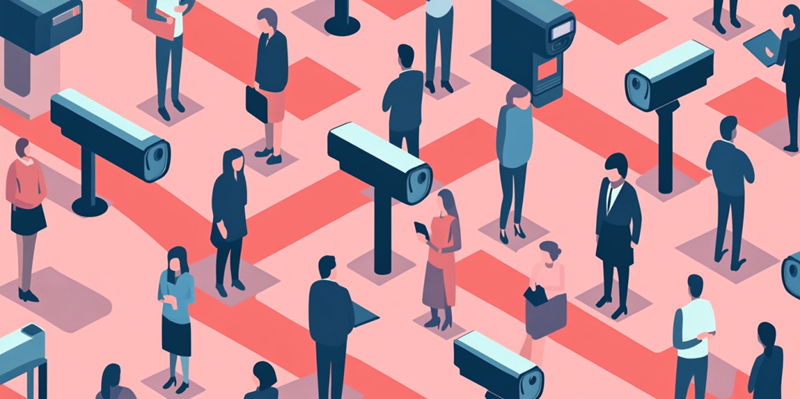The issue of privacy in the workplace has resurfaced as a contentious topic, especially in light of recent allegations against tech giant Apple. Employee Amar Bhakta has filed a lawsuit claiming that Apple engages in invasive surveillance practices that infringe on both personal and company-managed devices, raising serious questions about privacy rights. Bhakta contends that Apple collects data such as location and personal information from employees’ iPhones, even when they are not on duty. Additionally, he has accused the company of illegal wage clawback policies and restricting his ability to speak publicly about digital advertising. Compounding these grievances, Bhakta claims that Apple insisted he modify his LinkedIn profile to omit unprotected information about his work.
Apple has responded to these allegations through spokesperson Josh Rosenstock, who stated that Apple "strongly" disagrees with the claims brought forth by Bhakta. Rosenstock emphasized that the allegations lack merit and defended Apple’s business practices, highlighting that employees have the right to discuss wages, hours, and working conditions as per Apple’s business conduct policy. This response attempts to frame Apple as a company that upholds employee rights, despite the accusations. Nevertheless, the lawsuit has sparked a broader debate on the limits of workplace surveillance and the extent to which companies can monitor employees’ activities.
Repercussions and Industry Context
The lawsuit against Apple is not an isolated incident in the tech industry. The pandemic has accelerated remote work, increasing the reliance on digital tools, and bringing workplace surveillance practices under sharper scrutiny. Companies like Amazon have previously faced significant backlash and even fines for excessive monitoring of their workers. These actions have ignited discussions around the ethical implications of surveillance, especially when it extends into employees’ personal time and spaces. Bhakta’s case against Apple throws these issues into stark relief, illustrating the fine line between protecting a company’s intellectual property and respecting the privacy of its employees.
Experts in the field, such as former Workhuman executive Rosette Cataldo, argue that employee productivity should not hinge on intrusive surveillance methods. Instead, she advocates for systems based on goal creation and feedback, which can provide a more respectful and effective way to gauge performance. This raises an essential question for companies: can employee productivity be measured and enhanced without resorting to surveillance tactics that feel invasive and potentially violate privacy laws? As more employees work remotely, the answer to this question has significant implications for future workplace policies and employee satisfaction.
Legal and Ethical Challenges
The legal landscape surrounding workplace surveillance is evolving, and Bhakta’s lawsuit against Apple represents a significant moment in this ongoing debate. With allegations of illegal wage clawback policies and restrictions on public speech about company practices, Bhakta’s case touches on several critical legal and ethical issues. Companies must navigate these waters carefully to maintain employee trust and avoid potential legal repercussions. The tension between protecting proprietary information and respecting individual privacy is a delicate balance, one that requires thoughtful consideration and transparent policies.
This case also underscores the broader trend of legal and ethical challenges that companies face in the digital age. As technology continues to advance, the capabilities for monitoring employees are growing, but so too are the demands for privacy and autonomy from those employees. Organizations like Apple must consider not only the legal ramifications but also the potential damage to their reputation and employee morale. The outcome of Bhakta’s lawsuit could set important precedents for how companies approach surveillance and employee rights in the future.
Looking Forward
The issue of workplace privacy has emerged as a hot-button topic, especially amid allegations against Apple. Amar Bhakta, an employee, has filed a lawsuit claiming Apple engages in invasive surveillance practices that breach privacy on both personal and company-managed devices. Bhakta alleges Apple collects data like location and personal info from employees’ iPhones, even when they’re off-duty. He also accuses the company of illegal wage clawbacks and restricting his public discourse on digital advertising. Furthermore, Bhakta claims Apple demanded he alter his LinkedIn profile to exclude unprotected work information.
Responding to these charges, Apple spokesperson Josh Rosenstock stated that the company "strongly" disagrees with Bhakta’s allegations. Rosenstock argued the claims are baseless and defended Apple’s practices, noting that employees can discuss wages, hours, and working conditions under Apple’s business conduct policy. This counters Bhakta’s accusations and positions Apple as a defender of employee rights. Nonetheless, the lawsuit ignites a broader debate on workplace surveillance and the degree to which companies can monitor employee activities.

